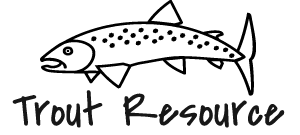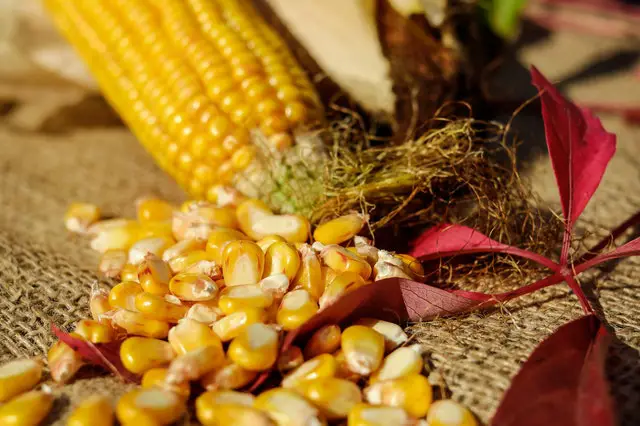Trout can be caught on some weird baits. In this article, I will give my reasoning why trout, even wild fish seem to readily take such weird bait.
Why do trout eat corn?
One of the most popular baits for trout fishing is a single corn kernel or two threaded onto a hook. Most fishermen then allow it to quickly float down current. Maybe trailing behind some split shot or below afloat.
But, why would a predatory fish like a trout want to eat corn?
Well, the simple answer. Is that the trout think it is something different. If you are targeting stock trout, they likely confuse corn with the pellets they grew up feeding upon. Many fish pellets even contain corn pulp, so they might even have a somewhat familiar scent.
It just so happens, a couple of corn kernels is about the same size as a fish pellet. Stock trout are usually hungry, so they are going to grab at anything which looks like food.
Not, all trout confuse corn for pellets. Others likely mistake it for fish eggs. Trout love to eat fish eggs, and corn kernels are broadly the same sharp. The color is slightly different, most eggs are clear or pinkish, but trout are probably not smart enough to really care.
The final reason, some trout just grab at it out of curiosity. They simply do not know what it is, so decide to give it a grab. Trout do grab and spit out a wide variety of small sticks, leaves, and pebbles, so it comes as little surprise that they are willing to taste corn.
Trout just grab it out of curiosity
Corn vs Powerbaits
There is natural corn and also powerbaits which somewhat resemble corn. Which is better? Well, natural corn kernel is certainly better for the environment. They do not take weeks or even months to break down on the stream floor. Plus being corn, and not some sort of gum or plastic trout can digest them if they do manage to swallow them.
Powerbait artificial corn does have a few advantages. The biggest one is shelf life. A little corn powerbait, with the lid down up tight can last for months in your tackle box. While a handful of corn needs to be replaced after every trip.
Which catches the most fish? I am no expert but I have seen trout caught on both. I honestly believe the trout really care.
Can you catch wild trout on corn?
Catching innocent stockies on corn might be one thing, but how about shy and cunning wild fish. These fish have never seen a fish pellet in their life. They grew up feeding on nymphs, mayflies and other insects.
Corn looks nothing like the aquatic life wild trout feed on. But, wild trout have a dirty secret. They love to predate on fish eggs, and corn just happens to somewhat resemble fish eggs.
So an egg eating trout, will likely also take corn but it needs to be presented with more finesse. It does not matter if it is a wild trout or a stock trout both can be caught on corn.
Why do trout eat Bread?
I first saw trout eating bread when I was child. We use to feed ducks off our bridge, and a couple of resident browns learned to raise up and snatch the occasional clump of bread among the feeding ducks.
These were wild trout, although slightly domesticated and they were willing to eat bread. So what might drive a trout to eat something as unnatural looking as bread?
Well, presentation and conditioning both play a part.
If you roll the bread up into a tight little ball. Then it also resembles fish eggs which trout love to feed upon. Bread also floats, so it is likely to drift downstream, and anything drifting past a feeding trout will likely be tried.
Trout which live in parks where people feed ducks, have likely tried bread before and know that it is food and it is safe. So for them to raise to take a small piece of bread from the surface is not that strange. Sometimes, they even take large chunks of bread.
Bread is therefore one of the better baits to use in urban parks. Simply because trout have tried it before. If you do decide to fish bread in a park, make sure there are no hungry ducks around. They love eating bread even more than the trout.
You can make a bread chum to attract trout
Where I grew up it was illegal to chum for trout. But many areas allow chumming because it is an effective way to bring in stock trout.
This is done by throwing lots of small pieces of fish food into the water. The chum of choice is often bread but some people use corn.
Fishermen will often dissolve the bread in water to create a mash. Then they will ladle a spoonful of bread pulp into the water every so often to create a constant trail of bread. This trail of bread then grabs the attention of any nearby trout which will follow the bread trail to its source.
Then simply fish your piece of bread among the food trail. It can be a very effective technique. Although, if others are fishing nearby, it can be seen as impolite to start chumming a river.
Chumming is also a rather messy practice and can cause water quality issues when too many people chum. This is also one of the main reasons why chumming for trout get banned.


This is a terrible article you never ever use corn as bait if it falls of the hook and another fish eats it, it kills them. Corn acts like popcorn in their stomach and explodes.
Thanks for the comment. No, corn does not kill trout. That is an urban legend that seems to persist. While corn is far from a balanced diet for trout it is not going to kill them. Even chumming with corn is unlikely to harm them.
Back in 1992 Thomas Bender Jr a fisheries biologist at the Benner Spring Research Station did a test where he fed 20 Rainbow trout a diet of whole corn kernel for 52 days straight. None of the trout died and they were able to partly digest and poo out the husks. They did put on significantly less weight than the control group but still appeared to be healthy.
The plastic trout eggs and silicon worms some people fish are much worst because they are not biodegradable.
Edit: Chumming with corn is sometimes banned because some fishermen use way too much and as it starts to decompose it affects the water quality. Chumming overwinter can be a big issue, because it does not start to decompose until spring.